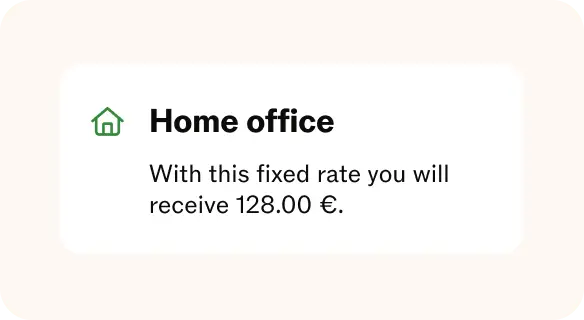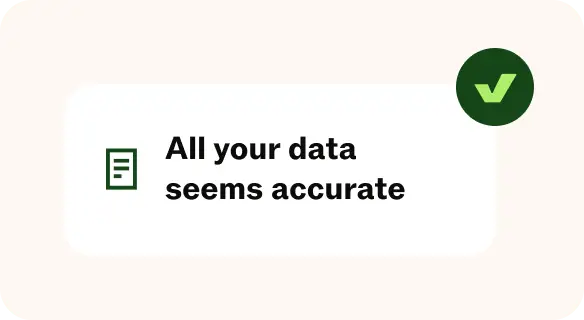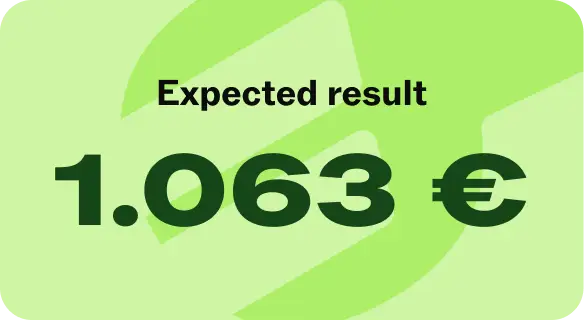Cheating on The Tax Return: Tricks and Risks
While cheating in the tax return sounds exciting, it’s also a punishable offence. The risks are high because the tax officials are aware of the common tricks taxpayers use to get higher tax refunds.
01.
Risks of Cheating on Your Tax Return
Many taxpayers dream of a big, unexpected tax refund. The possibility of getting more money back if you leave something out or invent something out of thin air is very tempting. Moreover, you need to send your receipts to the tax office only if the receipts are explicitly requested. No wonder it’s easy to assume that you can get away. But beware! The risk of getting caught is equally high!
02.
Cheating on the Commuter Allowance (Pendlerpauschale)
For the way to work and back, the state reimburses you with 0.30 euros per kilometre (0.38 euros from the 21st km) as part of your income-related expenses ( Werbungskosten ). It doesn’t matter whether you commute by car, skateboard, or train—the only thing that counts is the distance to the workplace. This distance can vary. For example, a longer route might have less traffic and save you time. So, why not enter a few extra kilometres? However, checking this information is very easy. You can find more about the commuter flat rate in the guide on Taxfix.
The tax officer who checks your tax return can use Google Maps in seconds to see whether your information makes sense.
Prepare your own tax return
From €39.99
Free until your refund calculation – then from €39.99 for submission.

Receive an advance calculation of your refund and pay only when you turn it in
Guided and intuitive process with simple questions
Automatic data retrieval: simply retrieve your income data from the tax office and have it pre-filled
The general deadline applies (July 31st)
€59.99 for married couples or registered partnerships looking to file a tax return together
Save money and secure exclusive benefits with Taxfix+
Get your tax assessment for free and only pay when you submit your return
Our Expert Service does it for you
From €99.99
20% of your refund (minimum fee: €99.99).

Provide a few necessary documents in minutes
An independent tax advisor will prepare your tax return for you
Personalised document upload: Only submit documents that are completely necessary
Detailed check of your information
Benefit from an extended tax deadline (April 30th, 2026)
Hand over, pay, relax.
03.
Cheating on Work Equipment (Arbeitsmitteln)
You can deduct specialist literature, a new computer, or laundry charges for your work clothes as income-related expenses. Your crime thriller can turn into a marketing textbook, the tablet can mutate into a work-horse for the woman, or the cleaning costs for the uniform can be a receipt for cleaning your favourite coat!
Tax officials know many of these textbook-tricks and can easily check ISBNs and invoices. Again, make sure your information is verifiable.
04.
Cheating on Training Costs (Fortbildungskosten)
If you have incurred costs during your training, you can also claim these as advertising costs. This applies to both the travel costs and the seminar costs themselves. However, the tax office often assumes that training is paid for by the employer and cross-checks the exact costs you have stated.
It can so happen that the tax officer calls your employer and verifies whether the employer has paid the costs.
Scan your payslip, and you're done!
It's so simple and completely digital: photograph or upload your documents. Taxfix then automatically transfers all important information. Accurately and stress-free!
Start now for free05.
Cheating with Double Housekeeping (doppelter Haushaltsführung)
If you have a second home for professional reasons, you can claim income-related expenses here as well. The possibilities to save taxes are immense, but since this point in the tax return is a bit more complex, it undergoes higher scrutiny. Read more about Doppelte Haushaltsführung in German here .
06.
Cheating on Your Workspace (Arbeitszimmer)
Have you ever considered deducting your workspace from tax? Depending on the area of activity and the tax officials, this is possible in a handful of cases. It can bring you back one or two euros, but it’s worth a try if you really have a workspace!
However, if an employee from the tax authorities arrives on a surprise visit only to find a children’s room or a laundry room, then you will have a lot of explaining to do.
Read all you need to know about deducting your expenses for working from home here (in German).
07.
Cheating on Additional Income (Nebeneinkünfte)
Earning a little extra besides the job is not unusual for most employees. This additional income must be declared in the tax return, or else it’s considered as tax evasion. This immediately catches the eye if your additional income exceeds a certain threshold amount. You can find out more about this in this article (in German) .
Of course, there are numerous other ways to work around your tax return. For instance, as a landlord during renovation work or when you gain shares from your own children’s accounts. But remember: submitting a manipulated tax return makes you liable to prosecution.
Note:
The paperless tax return system massively relieves tax offices. The tax cases can easily shift back and forth in the event of overload. A computer system checks the tax returns. The tax offices will examine tax returns with striking features ( think high advertising costs, deviations from previous years, etc.) more closely than mundane tax returns.
Taxfix advantages for all
With Germany's most popular mobile tax app, you can do your tax return in no time.

Guided and intuitive process
Answer our easy-to-understand questions, or sit back and have your taxes done by an independent tax advisor.

Reliable check of your data
We check your data for plausibility through sophisticated plausibility checks.

Estimated tax refund, free of charge
If you choose to file your own taxes with Taxfix, we’ll calculate how much you can expect back from the tax office.

Efficient and secure tax returns
Only answer what's related to your case. Or have your taxes prepared and submitted by an independent tax advisor.
08.
Tax Fraud Penalties
If you notice a mistake in your own tax return and report it to the tax office, you’ll be exempt from punishment. If the tax office notices an error in your tax return (such as unreasonably high income-related expenses or withholding additional income) and this error is in your favour, then you may be accused of tax fraud.
In the case of tax evasion of less than 50,000 Euros, you have to pay a fine: the embezzled taxes and 6% interest on evasion. If you exceed 50,000 Euros, you receive either a prison sentence or a fine, depending on the severity. Tax evasion of more than 100,000 euros is punishable with imprisonment of up to 5 years. In serious cases, one can receive a 10-year prison sentence, sometimes on probation. Tax evaders who evade taxes of more than 1 million Euros are sentenced to prison without parole. Aiding and abetting tax evasion is also a criminal offence.
09.
Tax Tricks for Employees
Tax fraud is a criminal offence. However, there are some legal tricks you can use on your tax return.
With the distance flat-rate, the shortest route does not always have to be the best. Medical expenses for prescribed medication or prescribed glasses that you have to pay for yourself can be deducted as an extraordinary burden.
Not just monetary donations, but also donations in kind can be stated in the tax return. As a household service, it is not only the cleaning staff that counts but also the pet sitter. Under certain conditions, you could issue your own receipts in the event of missing receipts, and of course you can save taxes if the timing of your payments is well planned.
Money on my mind – The Taxfix Podcast
We're talking about money! We break the taboo and talk about money with exciting guests every week - without mincing words.
Listen now